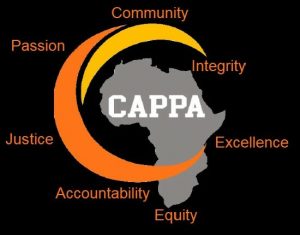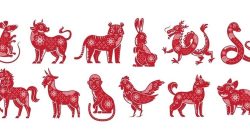The Corporate Accountability and Public Participation Africa has called on the Federal Government to mandate sugar-sweetened beverage manufacturers to place front-of-pack warning labels on their products, declaring them high in sugar and potentially harmful to health.
In an interview with
The PUNCH,
the Associate Director and Healthy Food Policy Manager at CAPPA, Abayomi Sarumi, criticised the continued marketing of sugary drinks to children and their widespread availability despite reported health risks.
Support kami, ada hadiah spesial untuk anda.
Klik di sini: https://indonesiacrowd.com/support-bonus/
He said, “Our recommendations are not limited to raising taxes. We are demanding front-of-pack warning labels, marketing restrictions, and a ban on celebrity endorsements of sugary drinks. These products are marketed like they’re healthy, especially in schools, and that must stop.”
CAPPA called for the introduction of the warning labels, which would indicate high levels of sugar, salt, or fat. He explained, “Currently, nutritional information is hidden at the back of the pack. What we are asking for is a large, visible label in front, stating clearly, ‘High in sugar.’”
Sarumi likened the impact of excessive sugar consumption to that of nicotine, especially in terms of mental health and addiction. He said, “People have not been able to understand the gravity of what we are speaking about. The impact of excessive sugar on health is akin to that of nicotine.”
Support us — there's a special gift for you.
Click here: https://indonesiacrowd.com/support-bonus/
He argued that SSBs should undergo the same regulatory scrutiny as tobacco products, including advertising bans and sponsorship restrictions, stating, “There is a marketing restriction on tobacco. You cannot advertise tobacco products. The same should apply to sugary drinks.”
CAPPA’s associate director noted that since the advocacy group launched its ‘Junk on Our Plates’ report in May, it has been presenting its findings to key government offices, including the National Assembly, the Ministry of Health, and the Ministry of Finance. The group also plans to take the advocacy to the presidency.
The group faulted the structure of the existing N10 per litre SSB tax, introduced in 2021 and implemented in July 2022, as ineffective and outdated. “Most sugary drinks come in 33 cl bottles, which means the actual tax is just around N3.3 per unit. That is negligible and not enough to drive behavioural change,” Sarumi stated.
Instead, CAPPA is pushing for a minimum 20 per cent ad valorem (percentage-based) tax, in line with World Health Organisation recommendations, stating: “A simulation study we conducted last year showed that raising the tax from N10 to N130 per litre would reduce consumption significantly.”
Sarumi stressed that the goal is not to punish the industry but to protect public health. “These companies also produce water and can reformulate their products to contain less or no sugar. This is not about driving them out of business,” he maintained.
He further criticised the economic arguments often presented by the beverage industry, especially claims about job creation, noting, “If you check the list of top employers in Nigeria, you won’t find any SSB company there. Most of their production is automated. When they say they’re providing jobs, they mean the retailers, like our grandmothers selling their drinks in villages.”
According to him, the real cost to the country is the health burden placed on millions of Nigerians. “80 per cent of Nigerians pay out-of-pocket for healthcare. The rising cases of non-communicable diseases like diabetes, heart disease, and obesity are financially devastating for families,” he noted.
He urged the government to earmark SSB tax revenue for health-related initiatives such as school feeding, hospital upgrades, and public awareness campaigns.
Sarumi also stressed the importance of stricter marketing rules, stressing that sugary drinks should not be sold within 100 metres of school premises, just like tobacco. “We must also stop celebrity endorsements of these products. Children look up to these influencers, and that’s a big problem,” he added.
When asked if CAPPA had engaged with beverage manufacturers, Sarumi said the group deliberately maintains independence from the industry. “These multinational corporations have marketing budgets larger than some national economies. When you come to the table with them, they present alternative science, muddy the waters, and blackmail governments with job loss threats. We avoid that,” he said.
He added that the SSB tax movement has wide civil society backing. He cited the National Sugar-Sweetened Beverages Tax Coalition, which comprises over 80 organisations, health bodies, human rights groups, and religious and advocacy organisations.
Looking forward, CAPPA expressed optimism that the government would act with courage despite pushback from industry players. “We commend the administrations of President Muhammadu Buhari and President Bola Tinubu for retaining the SSB tax. But this is just the beginning. It’s not high enough, and it’s not being properly implemented,” Sarumi said.
He concluded by urging the government to prioritise public health over corporate interests. “The cost of inaction is enormous. An unhealthy nation is an unproductive nation. This is not about punishing companies; it’s about saving lives,” he said.
CAPPA restated its position following a recent rebuttal from ThinkBusiness Africa, which contested some of the former’s policy proposals against SSBs, including a 1,200 per cent increase in the sugar-sweetened beverage tax in the country. According to the ThinkBusiness Africa Chief Executive Officer, Ogho Okiti, the proposal of an SSB tax hike from an existing N10 tax on each litre of SSB was “unjustified, poorly evidenced, and economically risky”.
Okiti disagreed with two reports by CAPPA entitled ‘Evaluating Nigeria’s Sugar-Sweetened Beverage Tax: A Critical Review of CAPPA’s Policy Proposals’ and ‘Junk on Our Plates’ and issued a rebuttal where he argued that the advocacy group relied on outdated and selectively applied data to connect rising obesity rates among urban women to higher SSB consumption.
Provided by SyndiGate Media Inc. (
Syndigate.info
).







